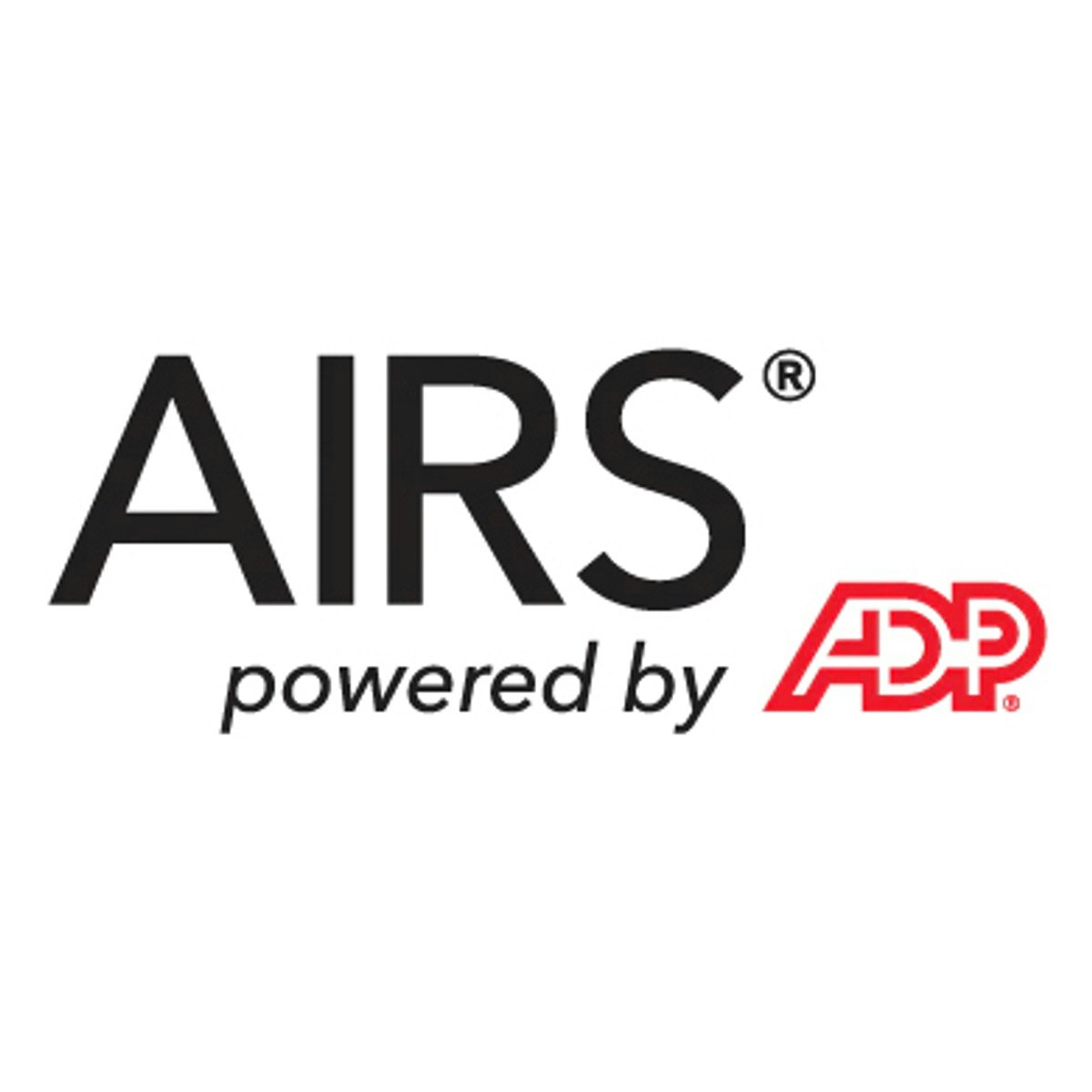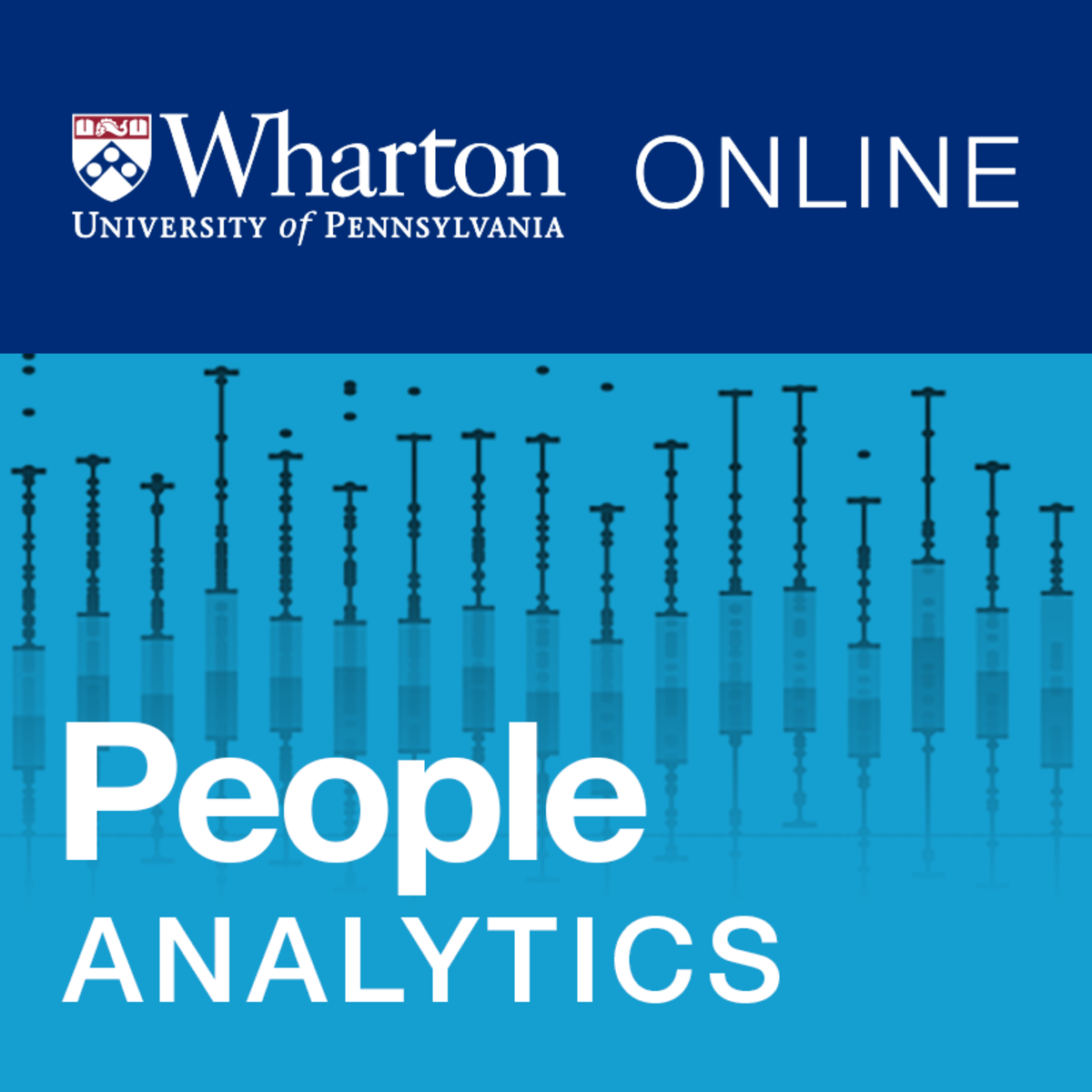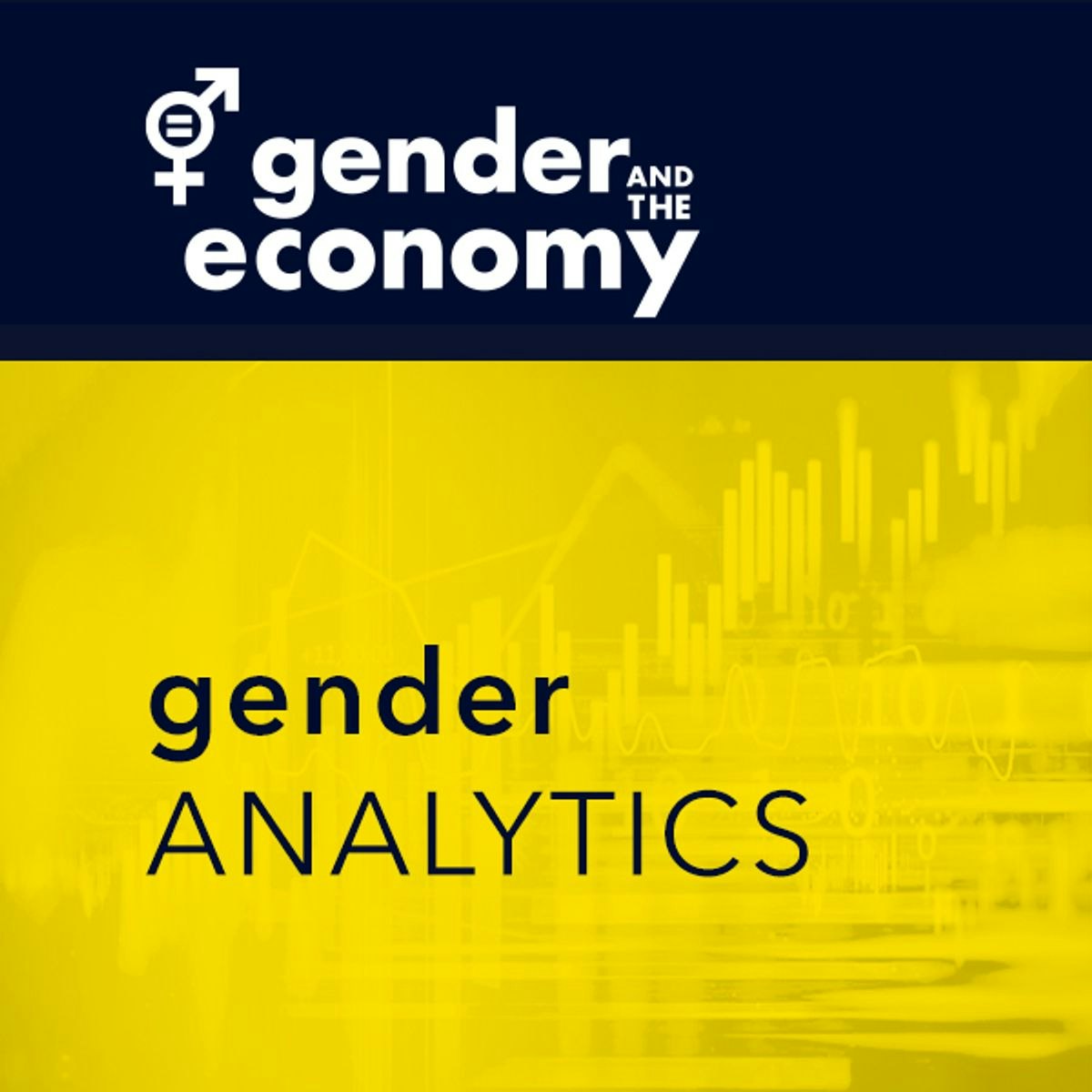Diversity and Inclusion Manager
Diversity and Inclusion Manager: A Comprehensive Career Guide
A Diversity and Inclusion (D&I) Manager, sometimes referred to as a Diversity, Equity, and Inclusion (DEI) Manager, plays a crucial role in shaping modern workplaces. They champion initiatives that foster environments where employees from all backgrounds feel valued, respected, and empowered to contribute fully. This involves developing strategies, policies, and programs that promote fairness and address systemic barriers within an organization.
Working in this field offers the chance to make a tangible difference in people's lives and organizational culture. D&I Managers often lead efforts in training, recruitment, and policy development, driving meaningful change. The role demands strategic thinking, strong communication skills, and a deep commitment to social justice principles, making it both challenging and highly rewarding.
Introduction to Diversity and Inclusion Management
This section introduces the core concepts, history, and significance of the Diversity and Inclusion Manager role.
What is a Diversity and Inclusion Manager?
A Diversity and Inclusion Manager is a professional responsible for developing, implementing, and overseeing strategies that promote diversity, equity, and inclusion within an organization. Their scope includes ensuring fair treatment, access, opportunity, and advancement for all employees while addressing biases and systemic inequalities. They work across departments, particularly with Human Resources, leadership, and legal teams.
These managers analyze workforce demographics, policies, and practices to identify areas needing improvement. They aim to create a culture where differences are not just tolerated but celebrated as strengths. The goal is a workplace where everyone, regardless of race, ethnicity, gender, age, religion, disability, sexual orientation, or other characteristics, feels a sense of belonging.
This role requires a blend of strategic planning, interpersonal skills, data analysis, and legal knowledge. D&I Managers act as advocates, educators, and change agents within their organizations, driving initiatives that align with both ethical standards and business objectives.
To gain a foundational understanding of the concepts involved, several introductory courses are available.
The Evolution of DEI
The field of Diversity and Inclusion has evolved significantly over the decades. Early efforts often focused primarily on compliance with anti-discrimination laws, stemming from civil rights movements and legislation. This initial phase centered on ensuring organizations met legal requirements regarding representation and fair treatment, particularly concerning race and gender.
Over time, the focus broadened beyond mere compliance to recognizing the strategic value of diversity. Research began highlighting how diverse teams could drive innovation, improve problem-solving, and enhance financial performance. This shifted the conversation towards inclusion – creating environments where diverse perspectives are actively sought and utilized.
Today, the field integrates equity, acknowledging that equal treatment isn't enough; policies must address historical disadvantages and systemic barriers to ensure fair outcomes. The scope now encompasses a wider range of identities and experiences, including disability, LGBTQ+ status, neurodiversity, socioeconomic background, and more, reflecting a more holistic understanding of workplace dynamics.
Core Objectives of DEI Work
The primary goal of a D&I Manager is to cultivate a workplace that is fundamentally equitable and inclusive. This involves actively working to dismantle systemic biases embedded in organizational structures, policies, and practices. Addressing these biases helps ensure fair opportunities for recruitment, promotion, and development for all employees.
Fostering an equitable environment means creating conditions where everyone can thrive. This includes promoting psychological safety, where employees feel comfortable speaking up, sharing ideas, and taking risks without fear of negative consequences. It also involves ensuring that resources and support are distributed fairly, considering individual needs and historical contexts.
Ultimately, D&I work aims to build a strong sense of belonging for everyone in the organization. When employees feel they belong, they are more engaged, motivated, and committed. This not only improves individual well-being but also contributes significantly to the overall health and success of the organization.
Key Industries and Settings
Diversity and Inclusion Managers are employed across a wide range of industries. Technology companies, facing scrutiny over workforce demographics and product bias, have significantly invested in DEI roles. Similarly, finance, consulting, and legal sectors prioritize DEI to attract diverse talent and better serve diverse client bases.
Healthcare organizations employ D&I Managers to address health disparities and ensure culturally competent care for diverse patient populations. Educational institutions, from K-12 schools to universities, hire DEI professionals to foster inclusive learning environments for students and equitable workplaces for faculty and staff.
Government agencies and non-profit organizations also rely on D&I Managers to ensure their services are accessible and equitable, and that their internal practices reflect the communities they serve. Increasingly, even smaller businesses recognize the importance of DEI, although dedicated roles might be combined with other HR functions.
Key Responsibilities of a Diversity and Inclusion Manager
This section details the day-to-day tasks and strategic functions inherent in the D&I Manager role.
Designing and Implementing DEI Strategies
A core responsibility is the development and execution of comprehensive DEI strategies aligned with organizational goals. This involves assessing the current state of diversity, equity, and inclusion through data analysis, surveys, and employee feedback. Based on this assessment, managers identify key priorities and set measurable objectives.
Implementation requires crafting action plans that outline specific initiatives, timelines, and responsible parties. This might include launching employee resource groups (ERGs), revising policies, or integrating DEI principles into performance management. Effective D&I managers ensure these strategies are embedded throughout the organization, not just siloed within HR.
They continuously monitor progress, adapt strategies based on outcomes and evolving needs, and communicate the impact of DEI initiatives to stakeholders. Building buy-in from leadership and employees across the organization is crucial for sustainable change.
These courses offer insights into developing and implementing effective DEI strategies.
Conducting Bias Audits and Training
D&I Managers often lead efforts to identify and mitigate bias within the organization. This includes conducting audits of processes like recruitment, promotion, and compensation to uncover potential systemic biases. Analyzing data for disparities across different demographic groups is a key part of this process.
Developing and delivering training programs on topics like unconscious bias, microaggressions, inclusive leadership, and cultural competency is another critical function. These programs aim to raise awareness, provide employees with tools to recognize and address bias, and promote more inclusive behaviors.
The effectiveness of these audits and training programs depends on careful design and follow-up. D&I Managers work to ensure that learning translates into tangible changes in behavior and organizational practices, fostering a more equitable culture.
Understanding and addressing bias is fundamental. These courses delve into identifying and mitigating unconscious bias.
Collaborating on Inclusive Hiring Practices
Partnering with Human Resources and hiring managers to create more inclusive recruitment and selection processes is vital. D&I Managers help design job descriptions that use inclusive language and attract diverse candidate pools. They advise on sourcing strategies to reach underrepresented groups.
They may also be involved in training interview panels on mitigating bias during candidate evaluation and ensuring assessment criteria are objective and job-related. Implementing practices like blind resume reviews or structured interviews can help reduce unconscious bias in hiring decisions.
Beyond hiring, D&I Managers also contribute to developing inclusive onboarding processes. This ensures new hires from all backgrounds feel welcomed and supported, setting them up for success from day one.
These courses focus on building diversity through recruitment and onboarding.
Monitoring Compliance and Ethical Standards
Ensuring the organization complies with relevant anti-discrimination laws and regulations is a fundamental aspect of the D&I Manager's role. This involves staying updated on legal requirements related to equal employment opportunity, affirmative action, and accessibility.
They often work with legal counsel and HR to review policies and practices, ensuring they meet legal standards and ethical considerations. This includes monitoring internal data related to hiring, promotion, and retention to identify potential compliance issues or areas of concern.
Beyond legal compliance, D&I Managers champion ethical conduct and promote a culture of fairness and respect. They may be involved in handling employee concerns or complaints related to discrimination or harassment, ensuring investigations are conducted fairly and appropriate actions are taken.
Essential Skills and Competencies
Success in a Diversity and Inclusion Manager role requires a unique blend of skills. This section outlines the core competencies needed.
Intercultural Communication and Conflict Resolution
Effective communication across cultural differences is paramount. D&I Managers must be adept at understanding diverse communication styles and adapting their own approach accordingly. This involves active listening, empathy, and the ability to navigate sensitive conversations with tact and respect.
Conflict is inevitable when dealing with diverse perspectives and challenging ingrained biases. Strong conflict resolution skills are essential for mediating disagreements, facilitating difficult dialogues, and finding common ground. This requires patience, neutrality, and the ability to foster understanding between differing viewpoints.
Building trust and rapport with individuals from various backgrounds is key to fostering collaboration and driving change. These interpersonal skills enable D&I Managers to effectively engage employees at all levels.
Developing strong communication skills for diverse environments is crucial. These resources can help build competence in intercultural interactions.
Data Analysis for Measuring DEI Initiatives
D&I Managers need strong analytical skills to measure the effectiveness of their initiatives and demonstrate impact. This involves collecting, interpreting, and reporting on diversity metrics related to workforce representation, hiring, promotion, retention, and employee engagement.
They use data to identify trends, pinpoint areas needing attention, and track progress towards DEI goals. Proficiency with data analysis tools and techniques allows them to present findings clearly and compellingly to stakeholders, making the case for continued investment in DEI efforts.
Understanding how to translate data into actionable insights is critical. This enables managers to refine strategies, allocate resources effectively, and demonstrate the tangible benefits of a diverse and inclusive workplace.
Knowledge of Employment Law and Compliance
A solid understanding of employment law, particularly anti-discrimination legislation (like Title VII in the U.S., the Equality Act in the U.K., etc.), is essential. D&I Managers must know the legal landscape regarding equal opportunity, affirmative action, harassment prevention, and accommodations for disabilities.
This knowledge informs the development of compliant policies and practices. It also helps managers identify potential legal risks and advise the organization on mitigating them. Staying current with evolving legal standards and court rulings is crucial.
While not typically practicing lawyers, D&I Managers often collaborate closely with legal departments to ensure all initiatives align with legal requirements and ethical best practices, protecting both employees and the organization.
Leadership and Stakeholder Management
D&I Managers must possess strong leadership qualities to champion change and influence organizational culture. This includes the ability to articulate a clear vision for DEI, inspire commitment from others, and navigate resistance effectively.
Managing relationships with diverse stakeholders – including senior executives, middle managers, employees, ERGs, and external partners – is critical. Building coalitions, fostering collaboration, and securing buy-in across different groups are essential for implementing successful DEI initiatives.
They need resilience and persistence, as driving cultural change can be a long and challenging process. Strong project management and strategic thinking skills are also necessary to manage multiple initiatives simultaneously and align DEI efforts with broader business objectives.
These courses focus on the leadership aspects crucial for DEI roles.
Formal Education Pathways
While passion and experience are vital, formal education often provides a strong foundation for a career in Diversity and Inclusion Management.
Relevant Undergraduate Degrees
Several undergraduate degrees can provide a relevant background. Sociology offers insights into social structures, inequality, and group dynamics. Psychology, particularly organizational psychology, helps understand individual behavior, bias, and group processes in workplace settings.
A degree in Human Resources provides foundational knowledge of employment law, recruitment, compensation, and employee relations – areas closely intertwined with DEI. Fields like Political Science, Ethnic Studies, Gender Studies, or Communications can also offer valuable perspectives and skills.
Regardless of the specific major, coursework focusing on social justice, critical theory, statistics, research methods, and communication enhances preparation for a DEI career. Internships or volunteer work in related areas during undergraduate studies are highly beneficial.
You can explore relevant degree programs and related subjects through Social Sciences or Business categories on OpenCourser.
Graduate Programs and Specializations
Advanced degrees can deepen expertise and enhance career prospects. Master's or doctoral programs in Organizational Psychology, Industrial/Organizational Psychology, or Human Resource Management often include specializations or coursework relevant to DEI.
Some universities now offer specific graduate degrees or certificates focused explicitly on Diversity, Equity, and Inclusion. These programs delve deeper into DEI theory, strategy development, measurement, change management, and legal frameworks.
Research-focused programs (like PhDs) allow for in-depth study of specific topics like workplace equity, bias mitigation, or inclusive leadership, preparing individuals for academic roles or senior strategic positions in organizations.
Professional Certifications
Certifications can demonstrate specialized knowledge and commitment to the field, particularly for those transitioning from other areas. Organizations like the Society for Human Resource Management (SHRM) offer certifications (e.g., SHRM-CP, SHRM-SCP) that cover DEI as part of broader HR competencies.
More specialized certifications focusing specifically on diversity and inclusion are also available from various professional organizations and universities. Examples include the Certified Diversity Professional (CDP) or Certified Diversity Executive (CDE) credentials offered by institutes like The Institute for Diversity Certification (IDC).
Choosing a certification depends on career goals and industry recognition. Researching different certification bodies and their requirements is important. Many certifications require a combination of education, experience, and passing an exam. You can often find preparatory materials or courses, including options on OpenCourser.
Research in Workplace Equity
Engaging with research is crucial for staying current in the evolving field of DEI. Academic journals publish studies on topics like the effectiveness of bias training, the impact of DEI policies on organizational performance, and emerging challenges in workplace equity.
For those pursuing advanced degrees, conducting original research offers an opportunity to contribute new knowledge to the field. Research skills, including data analysis and critical evaluation of studies, are valuable for practitioners seeking evidence-based approaches to DEI.
Staying informed involves reading publications from reputable sources, attending conferences, and networking with researchers and practitioners. Think tanks and research institutions also publish valuable reports on DEI trends and best practices, such as those found on Pew Research Center or Catalyst.
Online and Self-Directed Learning
Formal education isn't the only path. Online courses and self-study offer flexible and accessible ways to build DEI expertise, especially for career changers or those supplementing existing knowledge.
Prioritizing Key Learning Topics
Focus your learning on core DEI concepts. Understanding unconscious bias, microaggressions, privilege, and intersectionality is fundamental. Study inclusive leadership principles and how to foster psychological safety.
Learn about different dimensions of diversity beyond race and gender, including disability, LGBTQ+ identities, age, religion, neurodiversity, and socioeconomic status. Explore topics like cultural competency, allyship, and strategies for creating inclusive communication and meetings.
Familiarize yourself with basic employment law principles related to discrimination and harassment. Understanding how to measure DEI progress through data analysis is also increasingly important. Prioritize topics that fill gaps in your current knowledge or are most relevant to your target industry.
Online platforms offer a wealth of courses on these critical topics. These courses provide focused learning on essential DEI skills and concepts.
Building Portfolios Through Practical Projects
Theoretical knowledge is valuable, but practical application solidifies learning. Seek opportunities to apply DEI principles through volunteer work or projects within your current role or community organizations. This could involve helping organize a diversity event, contributing to an ERG, or analyzing survey data for inclusivity insights.
Consider developing a sample DEI training module, drafting an inclusive policy proposal, or conducting a small-scale bias audit for a hypothetical scenario or a volunteer group. Document these projects carefully, highlighting the skills you used and the outcomes achieved.
Building a portfolio of practical work demonstrates initiative and competence to potential employers. It shows you can translate theory into action, a crucial skill for any D&I Manager. OpenCourser's "Activities" section on course pages often suggests projects to apply learned concepts.
Balancing Online Learning with Experience
Online courses offer flexibility and breadth, but they are most effective when combined with real-world experience. Seek opportunities to observe DEI practices, participate in relevant discussions, and apply your learning in practical settings, even in small ways.
Networking with professionals in the field through online forums, conferences (virtual or in-person), or informational interviews provides invaluable context and insights. Mentorship can also be incredibly beneficial for guidance and support.
Don't solely rely on certificates; focus on genuinely mastering the skills and understanding the nuances of DEI work. Employers value demonstrated competence and thoughtful application of knowledge over a long list of completed courses.
OpenCourser's Learner's Guide offers tips on structuring self-learning and making the most of online courses for career development.
Transitioning from Adjacent Fields
Many successful D&I Managers transition from related fields like Human Resources, social work, law, education, marketing, or communications. Leverage your existing skills and experiences. For example, HR professionals already understand employment law and organizational structures. Social workers possess strong empathy and advocacy skills.
Identify the transferable skills from your background and pinpoint the specific DEI knowledge you need to acquire. Online courses, certifications, and targeted reading can help bridge these gaps. Highlight relevant experiences on your resume, framing them through a DEI lens.
Making a career pivot takes time and dedication. Be patient with the learning process and persistent in seeking opportunities. Emphasize your passion for DEI and your commitment to continuous learning. Networking within the DEI community is particularly important for discovering transition opportunities.
Career Progression and Advancement
The DEI field offers various entry points and pathways for growth, leading to senior leadership roles.
Entry-Level and Coordinator Roles
Entry into the field often begins with roles like DEI Coordinator or Specialist. These positions typically support senior managers in implementing programs, organizing events, managing communications, collecting data, and assisting with training logistics.
Responsibilities might include supporting Employee Resource Groups (ERGs), coordinating diversity recruitment efforts, and helping to track DEI metrics. These roles provide valuable hands-on experience and exposure to various facets of DEI work within an organization.
Candidates for these roles often have a relevant bachelor's degree and demonstrated interest or volunteer experience in DEI. Strong organizational, communication, and basic data handling skills are usually required.
Mid-Career Transitions and Specialization
Professionals from fields like HR, law, or project management may transition into mid-level DEI roles, such as D&I Manager or Program Manager. These roles involve greater responsibility for designing and managing specific DEI initiatives or programs.
At this stage, individuals may begin to specialize in areas like supplier diversity, inclusive product design, DEI analytics, or specific dimensions of diversity (e.g., disability inclusion, LGBTQ+ advocacy). Experience in strategy development, stakeholder management, and data analysis becomes increasingly important.
This often requires additional focused training or certification, combined with several years of relevant professional experience. Building a track record of successful project implementation and demonstrating impact are key for advancement.
Senior Leadership Pathways
Experienced D&I Managers can progress to senior leadership roles such as Director of Diversity and Inclusion or Vice President of DEI. These positions involve setting the overall DEI vision and strategy for the organization, managing a team, overseeing budgets, and advising executive leadership.
The highest level in many organizations is the Chief Diversity Officer (CDO). The CDO typically reports directly to the CEO and plays a critical role in integrating DEI into all aspects of the business strategy. These roles require extensive experience, deep subject matter expertise, strong leadership capabilities, and business acumen.
Advancement to senior levels often involves a proven ability to drive systemic change, influence C-suite executives, and demonstrate the strategic value of DEI to the organization's bottom line and reputation.
Salary Benchmarks and Compensation
Compensation for DEI roles varies significantly based on factors like location, industry, organization size, level of experience, and specific responsibilities. Entry-level coordinator roles typically offer salaries comparable to other entry-level HR or administrative positions.
Mid-level D&I Manager salaries generally align with other experienced HR or program management roles. Senior positions like Director or CDO command significantly higher compensation, reflecting their strategic importance and scope of responsibility, often comparable to other executive-level positions.
Resources like Salary.com, Payscale, Glassdoor, and industry-specific surveys provide general benchmarks. However, it's wise to research specific local markets and industries. According to salary guides like those from Robert Half, demand for skilled HR professionals, including those with DEI expertise, remains strong, influencing compensation levels.
Industry Trends Impacting Diversity and Inclusion Managers
The DEI field is dynamic, influenced by broader societal, technological, and economic shifts. Staying aware of these trends is crucial.
Rise of ESG Frameworks
Environmental, Social, and Governance (ESG) criteria are increasingly important for investors, consumers, and employees. The "Social" component of ESG directly encompasses DEI metrics, such as workforce diversity, pay equity, inclusion programs, and community impact.
This trend elevates the strategic importance of DEI work, as it directly contributes to an organization's ESG performance and reporting. D&I Managers are increasingly involved in collecting data for ESG reports and demonstrating how DEI initiatives align with broader sustainability goals.
The integration of DEI into ESG frameworks provides D&I Managers with a powerful lever to advocate for resources and influence corporate strategy, linking DEI outcomes to financial performance and corporate reputation.
AI in Bias Detection and Mitigation
Artificial Intelligence (AI) presents both opportunities and challenges for DEI. AI tools are being developed to help detect bias in hiring algorithms, performance reviews, and even communication patterns. These tools can potentially offer scalable ways to identify and address systemic biases.
However, AI systems can also perpetuate or even amplify existing biases if not designed and audited carefully. D&I Managers need to understand the potential and pitfalls of AI in DEI, collaborating with tech teams to ensure ethical deployment and monitor outcomes.
This requires a degree of technological literacy and critical thinking about how algorithms impact fairness and equity in organizational processes. The intersection of AI and ethics is a growing area of focus.
Globalization and Cross-Cultural Challenges
As organizations become more global, D&I strategies must adapt to diverse cultural contexts and legal frameworks. What constitutes "diversity" and the specific priorities for inclusion can vary significantly across different countries and regions.
D&I Managers working in multinational corporations need strong cross-cultural competence. They must develop global DEI frameworks that allow for local adaptation while maintaining core principles of equity and respect.
Navigating differing cultural norms, languages, and legal requirements related to diversity dimensions (like LGBTQ+ rights or religious practices) adds complexity to the role. Effective global DEI requires sensitivity, adaptability, and strong collaboration with local teams.
These courses explore managing across cultures.
Remote Work and Inclusion Dynamics
The rise of remote and hybrid work models presents new challenges and opportunities for inclusion. While remote work can increase accessibility for some (e.g., individuals with disabilities, caregivers), it can also create risks of isolation, reduced visibility, and proximity bias (favoring those physically present).
D&I Managers must develop strategies to ensure equitable experiences for all employees, regardless of work location. This includes promoting inclusive virtual communication practices, ensuring fair access to opportunities and resources, and addressing potential biases in performance evaluation for remote workers.
Adapting DEI initiatives for distributed teams requires creativity and intentional effort to maintain a sense of community and belonging across different work arrangements.
Challenges Facing Diversity and Inclusion Managers
While rewarding, the role of a D&I Manager comes with significant challenges. Understanding these obstacles is important for aspiring professionals.
Resistance to Cultural Change
Implementing DEI initiatives often involves challenging deeply ingrained organizational norms, beliefs, and power structures. Resistance can come from various sources, including employees who feel threatened by change, leaders who lack commitment, or simply organizational inertia.
Overcoming resistance requires persistence, strong communication skills, and the ability to build alliances and demonstrate the value of DEI. D&I Managers must be skilled change agents, adept at navigating skepticism and fostering buy-in at all levels.
This challenge underscores the need for resilience and strategic thinking. Celebrating small wins and highlighting success stories can help build momentum and gradually shift the organizational culture towards greater inclusivity.
Balancing Metrics with Qualitative Impact
Measuring the success of DEI initiatives can be complex. While quantitative data (like representation numbers) are important, they don't capture the full picture of inclusion and belonging. Relying solely on metrics can sometimes lead to tokenism or overlook qualitative aspects of employee experience.
D&I Managers face the challenge of balancing measurable outcomes with the less tangible, yet crucial, aspects of cultural change. This involves using a mix of quantitative data and qualitative methods (like focus groups, interviews, and sentiment analysis) to gain a holistic understanding of impact.
Communicating the value of both types of evidence to stakeholders is key. It requires demonstrating how improvements in belonging and psychological safety, even if harder to quantify, contribute to employee well-being and organizational performance.
Navigating Political Sensitivities
DEI work often touches upon sensitive social and political issues, including race, gender, sexuality, and systemic inequality. D&I Managers must navigate these potentially polarizing topics with care, fostering respectful dialogue while staying true to core principles of equity.
External political events and social movements can also impact workplace dynamics and employee relations, requiring D&I Managers to respond thoughtfully and provide support. Maintaining neutrality while advocating for marginalized groups can be a delicate balancing act.
This requires strong emotional intelligence, political acumen, and the ability to frame DEI initiatives in ways that resonate with diverse perspectives and align with organizational values.
Resource Limitations
Especially in smaller organizations or during times of economic constraint, D&I initiatives may face limitations in budget, staffing, and leadership support. D&I Managers often need to be resourceful and creative in achieving impact with limited resources.
This challenge highlights the importance of prioritizing initiatives, leveraging partnerships across departments, and effectively demonstrating the return on investment (ROI) of DEI work. Building strong business cases for DEI programs can help secure necessary resources.
Finding ways to integrate DEI principles into existing processes, rather than always creating standalone programs, can also be an effective strategy for maximizing impact within budget constraints.
Global Perspectives on Diversity and Inclusion Management
DEI is not a monolithic concept; its application and priorities vary significantly across the globe.
Regional Variations in DEI Priorities
Different regions and countries prioritize different aspects of diversity based on their unique histories, cultures, and legal contexts. For example, in the United States, race and ethnicity have historically been central focuses, while in parts of Europe, nationality, religion, or gender equality might receive greater emphasis.
In other regions, factors like caste, tribal affiliation, or socioeconomic background may be more salient dimensions of diversity. Understanding these local nuances is crucial for developing relevant and effective DEI strategies in a global context.
D&I Managers operating internationally must research and respect these regional differences, avoiding a one-size-fits-all approach imported from their home country.
Cultural Competency Requirements
Working effectively across cultures requires high levels of cultural competency. This involves understanding different cultural norms related to communication, hierarchy, decision-making, and conflict resolution. It also requires self-awareness of one's own cultural biases.
D&I Managers need to adapt their approaches to resonate with local cultural values while upholding universal principles of fairness and respect. Building trust and credibility with employees and leaders from diverse cultural backgrounds is essential.
Continuous learning about different cultures and developing intercultural communication skills are ongoing requirements for global DEI professionals. Missteps due to cultural misunderstandings can undermine DEI efforts.
Multinational Corporations’ DEI Frameworks
Multinational corporations (MNCs) face the challenge of creating cohesive global DEI strategies that can be adapted locally. This often involves establishing overarching principles and goals while allowing regional teams flexibility in implementation.
Global D&I Managers in MNCs work to share best practices across regions, build a common understanding of DEI values, and ensure consistency in core policies (where legally feasible). They often lead global employee resource groups and coordinate international DEI initiatives.
Balancing global consistency with local relevance requires strong collaboration between corporate headquarters and regional offices, as well as sophisticated cross-cultural management skills.
Impact of Local Labor Laws
Labor laws and regulations related to discrimination, data privacy, and employee rights vary significantly from country to country. Global D&I Managers must ensure that all initiatives comply with local legal requirements.
For instance, data collection practices related to employee demographics may be permissible in one country but restricted in another due to privacy laws. Affirmative action policies may be mandated in some jurisdictions but illegal in others.
Close collaboration with local HR and legal experts in each country of operation is essential to navigate this complex legal landscape and ensure that global DEI strategies are implemented lawfully and effectively.
Frequently Asked Questions
Here are answers to some common questions about pursuing a career as a Diversity and Inclusion Manager.
Is a graduate degree mandatory for this role?
A graduate degree is not always mandatory, but it is increasingly common and often preferred, especially for manager-level and higher positions. Relevant master's degrees (e.g., in HR, Organizational Psychology, Sociology, or specialized DEI programs) provide deeper theoretical knowledge and analytical skills valued in the field.
However, significant relevant experience, particularly in HR or a related field combined with demonstrated expertise in DEI through projects, certifications, or impactful work, can sometimes substitute for an advanced degree. For entry-level roles, a bachelor's degree combined with passion and relevant experience might suffice.
Ultimately, requirements vary by organization and role level. Researching specific job postings provides the best indication of typical educational expectations.
How does this career differ from HR generalist positions?
While there is overlap, particularly in areas like recruitment and compliance, a D&I Manager focuses specifically on strategies and initiatives to foster diversity, equity, and inclusion. Their scope is dedicated to analyzing systemic issues, developing targeted programs, and driving cultural change related to DEI.
An HR Generalist typically has broader responsibilities covering various HR functions like payroll, benefits administration, employee relations, and performance management, with DEI potentially being just one component of their role. They manage the day-to-day HR operations.
In larger organizations, D&I Managers often work closely with HR Generalists and Specialists, but the D&I role requires deeper subject matter expertise and a strategic focus specifically on equity and inclusion challenges.
What industries have the highest demand?
Demand for D&I professionals is growing across many sectors. The technology industry has shown significant demand due to public pressure and a desire to foster innovation through diverse teams. Finance, consulting, healthcare, and higher education are also major employers of D&I Managers.
Consumer goods companies and large retail organizations increasingly focus on DEI to reflect their diverse customer base and enhance brand reputation. Government and non-profit sectors also continue to prioritize DEI roles.
While large corporations were early adopters, demand is expanding to mid-sized companies as awareness of DEI's importance grows. Industry reports and job market analyses can provide current insights into sector-specific demand.
Can freelancers or consultants specialize in DEI?
Yes, there is a growing market for freelance DEI consultants and consulting firms specializing in diversity and inclusion. Organizations often hire external consultants for specific projects like conducting DEI audits, developing training programs, facilitating workshops, or providing strategic advice.
Consulting offers variety and the opportunity to work with different organizations and industries. It typically requires significant expertise, a strong track record, and excellent business development skills to build a client base.
Many experienced D&I professionals transition into consulting after gaining substantial in-house experience. It provides an alternative career path for those seeking more autonomy or project-based work.
How is success measured in DEI roles?
Measuring success involves a combination of quantitative and qualitative indicators. Quantitative metrics include changes in workforce representation at different levels, promotion rates across demographics, retention rates, pay equity analysis, and participation in DEI programs.
Qualitative measures assess the inclusivity of the culture. This includes employee engagement survey results related to belonging and psychological safety, feedback from ERGs, analysis of employee relations issues, and anecdotal evidence of improved collaboration and respect.
Effective measurement links DEI outcomes to broader business goals, such as improved innovation, enhanced brand reputation, better talent attraction, and increased employee productivity. Success is ultimately about driving sustainable, positive change in both numbers and culture.
What are emerging subfields within DEI management?
The field of DEI is constantly evolving, leading to emerging specializations. One area is DEI in technology, focusing on algorithmic bias, inclusive product design, and diversity in tech pipelines. Another is the intersection of DEI and ESG (Environmental, Social, Governance), linking DEI metrics to broader corporate sustainability reporting.
Specializations related to specific diversity dimensions, such as neurodiversity inclusion or mental health in the workplace, are gaining prominence. Global DEI strategy, requiring expertise in navigating cross-cultural complexities, is another growing subfield.
Additionally, data analytics specifically for DEI (DEI Analytics) is becoming a distinct area of expertise, focusing on sophisticated methods for measuring impact and identifying systemic issues. Staying informed about these trends can help professionals position themselves for future opportunities.
Embarking on a career as a Diversity and Inclusion Manager is a commitment to fostering more equitable and effective workplaces. It requires continuous learning, resilience, and a deep passion for social justice. While challenging, the potential to drive meaningful change makes it a profoundly impactful path. Resources like OpenCourser can support your learning journey with courses and materials to build the necessary skills and knowledge.





































